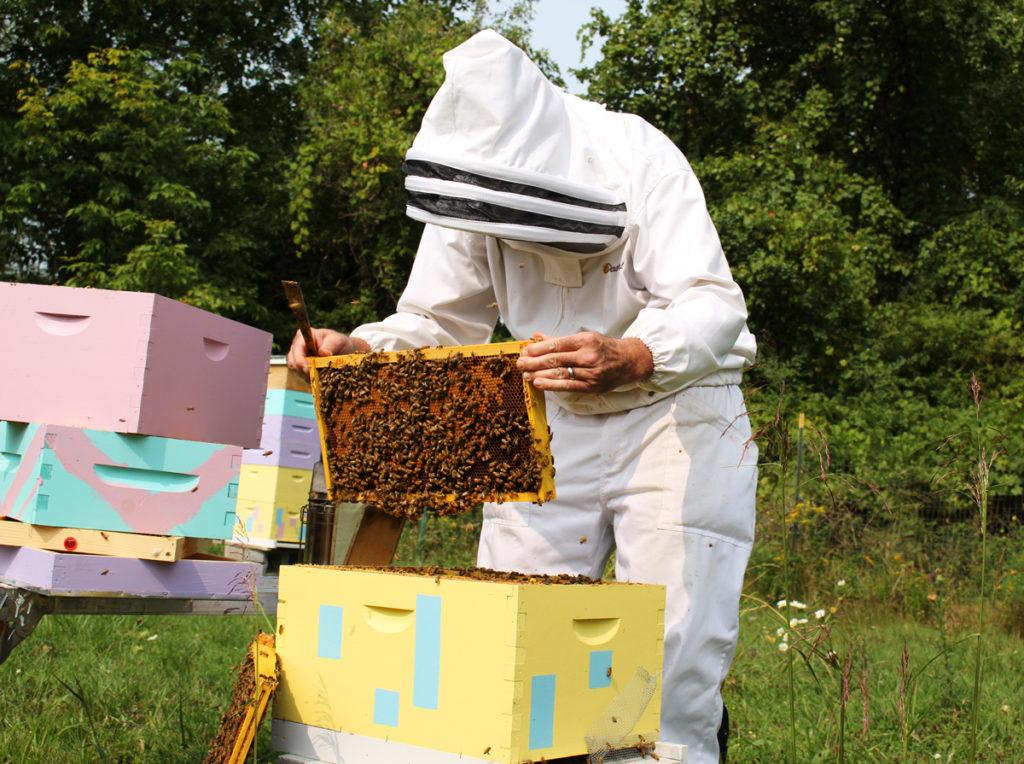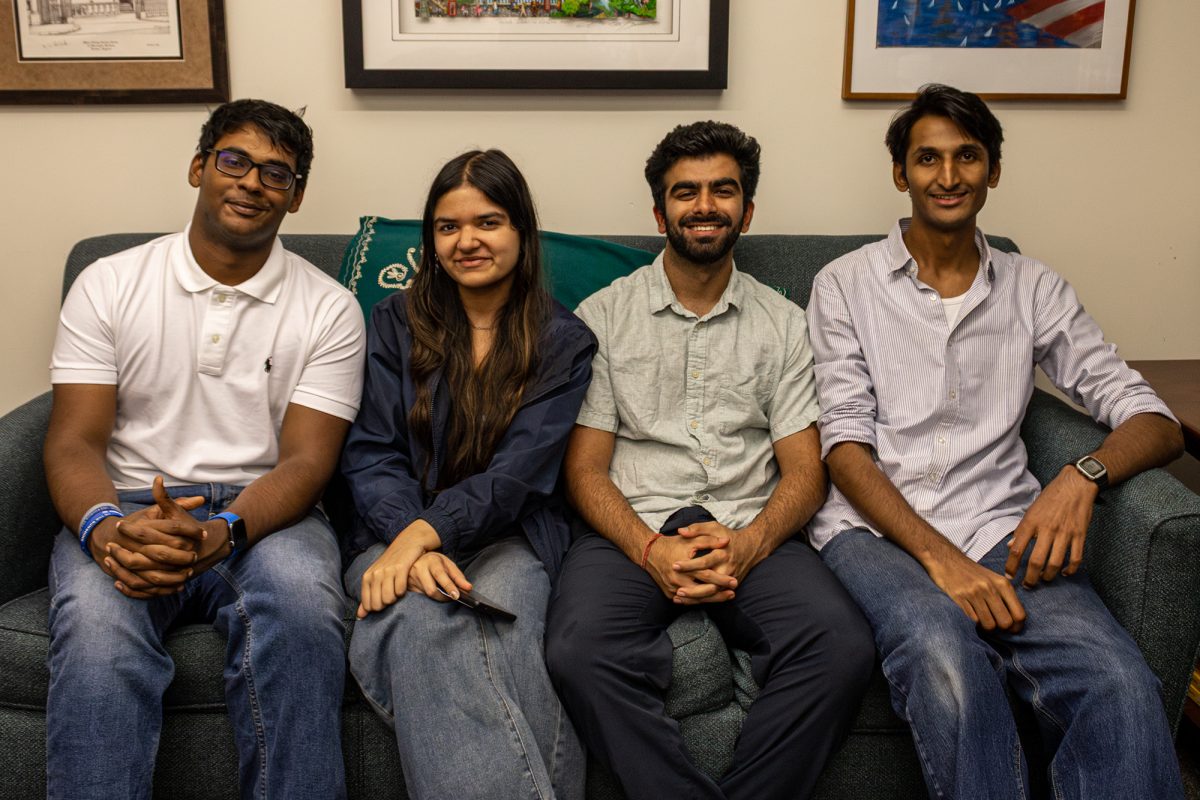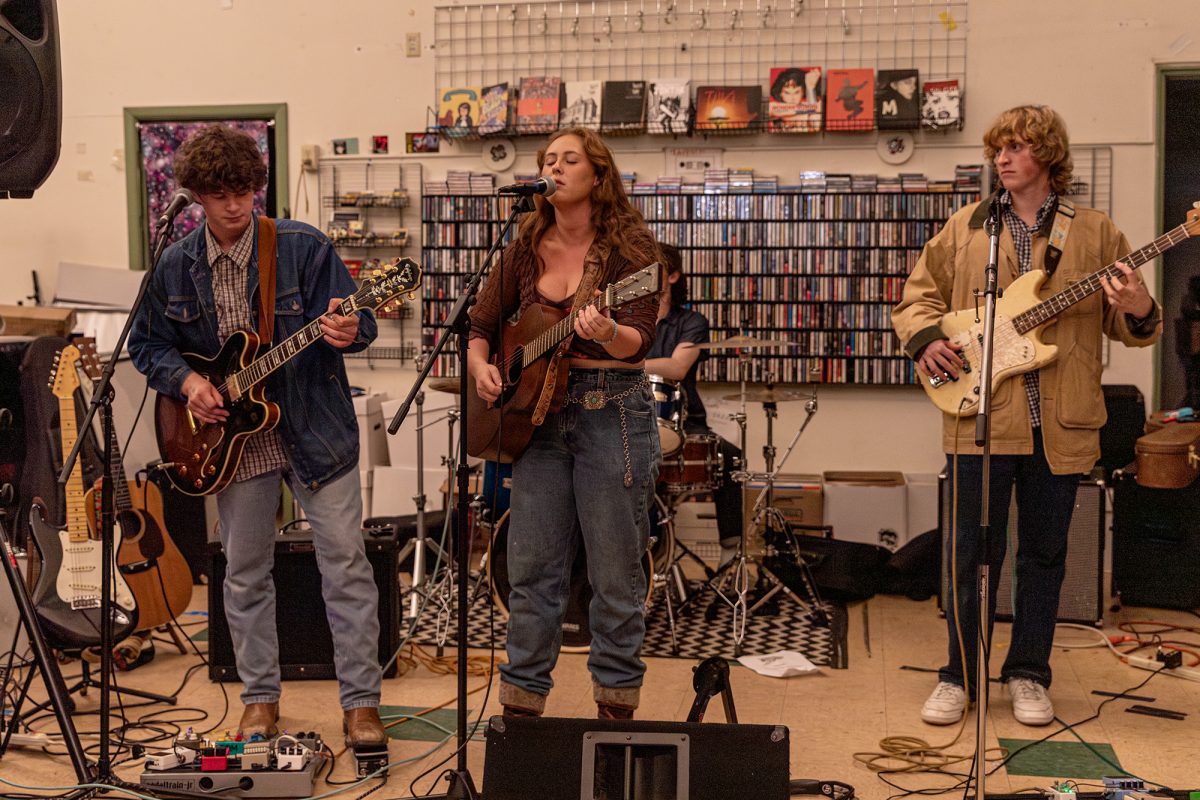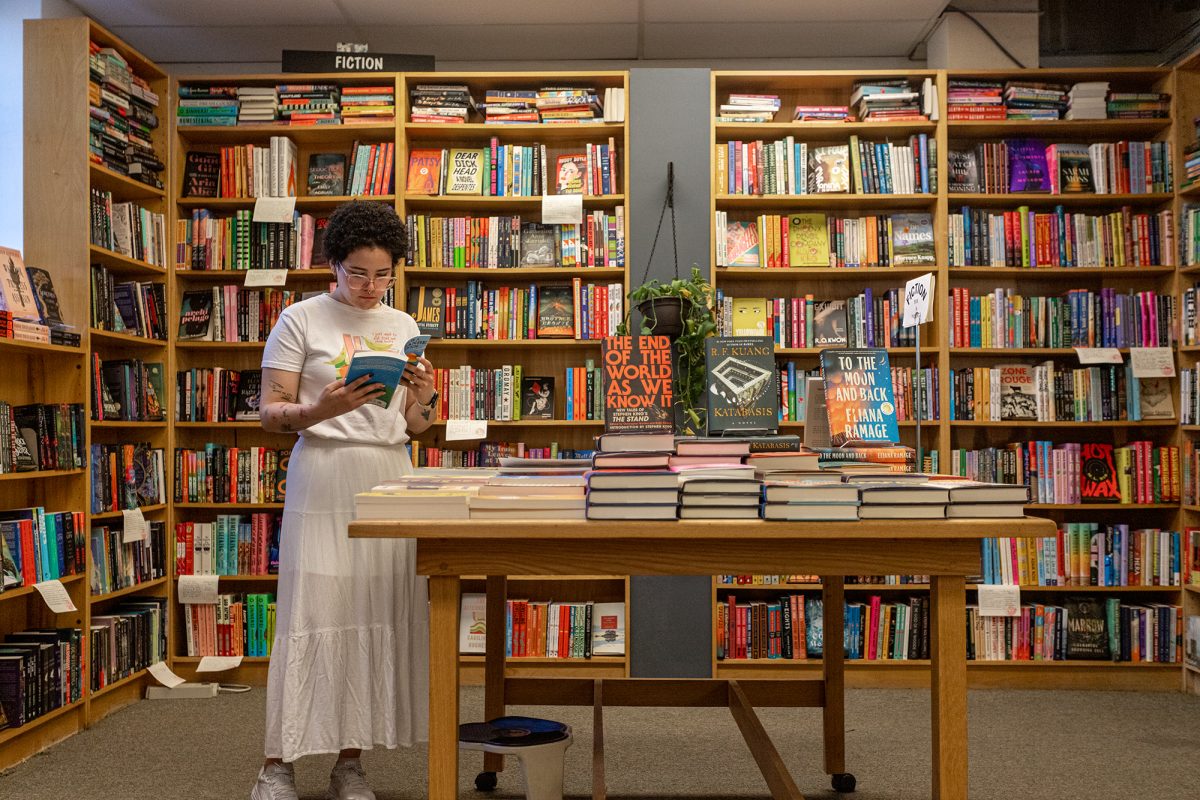Seven pastel, buzzing beehives sit in a grassy field next to a dirt road behind the Office of Public Safety and Emergency Management. This is Ithaca College’s apiary, where Jason Hamilton, professor in the Department of Environmental Studies and Sciences, cares for the bees on campus. As Hamilton carefully extracts the frames from the hive, the amber honey drips from the comb, and he searches for signs of health among the herd.
“Bees experience epidemics and pandemics just like people do,” he said.
Hamilton will be the apiary’s sole caretaker while classes are held online because of the COVID-19 pandemic. In the fall, Hamilton usually teaches the class Ecological Applications: The Nature and Necessity of Bees in which students assist in caring for the bees. Before winter, the insects produce honey and bundle up by huddling into a tight ball and vibrating to keep themselves warm. The class is not running this fall, and Hamilton will traipse that path alone.
“I like interacting with the colonies,” he said. “[But] I would rather give up personal time with the bees and have the students do it.”
Senior Emily O’Neil, an environmental science major, said that she was first hired as the apiary’s head beekeeper, usually a paid position on campus, her sophomore year after working as Hamilton’s lab assistant in Spring 2018. She moved to Ithaca in August but was not able to visit or work at the apiary because of restrictions on students working on campus.
“It hurts a little knowing that they’re so close and I can’t really do anything,” she said. “It’s my passion. That’s what I love to do.”
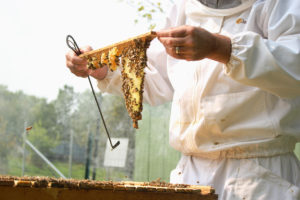
Because students cannot work at the apiary during this semester, Hamilton said he expects greater colony losses. Bees die every year, as is normal during the winter months, but Hamilton said he cannot care for the colonies consistently without the students’ help. For the same reasons, he will also not be able to extract as much honey. Hamilton said he is considering donating the honey that is harvested to the Ithaca community rather than the typical method of selling it through South Hill Forest Products, a business run by students with support from the Department of Environmental Studies and Sciences.
On a cool September morning, Hamilton wore a white protective bee suit with a hood and screen that separates him from the swarm. He walked through the grassy apiary, armed with a hive smoker to calm the bees, ready to conduct a routine hive inspection.
Using a hive tool to open one of the apiary’s five Langstroth hives — which has vertically stacked frames — the sound of a sharp crack issued from the pastel box as he pried the top off. The stark noise was a result of the cold weather, Hamilton said. The humming hive mingled with the smoke.
“They’re a little less touchy than those other ones,” Hamilton said, referring to the bees in one of the apiary’s two one-level top bar hives, where a bee stung his bare hand.
Bees start to emerge from their winterlong hibernation in approximately April. The summertime months are their most active ones. They flit between the apiary’s hives and the nearby garden, carrying pollen back to their homes. When the hives grow busy and full, some bees perch themselves on the front of their home, the equivalent of taking a seat on the front porch, Hamilton said.
Hamilton observed the full frame of capped honey, or honey that has been sealed into the comb with wax. He also sought out indications of disease, like the common American foulbrood. Hamilton said that within a few weeks, the honey should be ready to harvest.
O’Neil said that while she understands the need for regulations on students coming to campus, she wishes she could continue to help to take care of the bees.
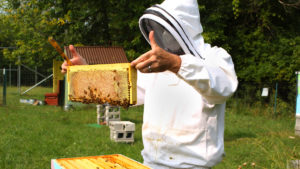
“The bees are our animals,” she said. “They’re wild animals, but, at the same time, we have to take care of them and we have to make sure … they’re healthy to go into winter. … We have to be there.”
While Hamilton and O’Neil fear large colony losses at the college’s apiary, there have been fewer losses among bee colonies in the United States compared to last year. The Bee Informed Partnership (BIP) conducted its 14th survey on bee colony losses in the United States. The study took place Oct. 1, 2019–April 1, 2020, or the approximate hibernation period for honey bees.
Approximately 22.2% of all honey bees were lost, a decrease of 15.5 percentage points from its previous survey from Oct. 1, 2018, to April 1, 2020, in which BIP discovered a 37.7% loss. Honey bees and other pollinator bees assist in crop production, approximately $170 billion worth, and a continued increase in losses will have devastating effects on crop production.
The Dyce Lab for Honey Bee Studies at Cornell University is another apiary in Ithaca that has been affected by the pandemic. Scott McArt, assistant professor of pollinator health, said the off-campus lab is operating at approximately 50% its usual operations during a normal year.
Research at the Dyce Lab was shut down in March when the university went online for the semester. Work was reinstated slowly, McArt said, because the university only allowed fieldwork-based research to begin in June. It wasn’t until August that indoor lab work, like projects in the Department of Entomology, was allowed to recommence with masks and limited density.
During the portion of the summer when only fieldwork research was allowed, McArt said that he felt as if he was able to reconnect with the bees by spending time caring for them.
“I can just drop everything for a while and just do some beekeeping, just go enjoy these colonies,” he said. “I’ve greatly enjoyed just getting back to my roots and just enjoying spending some time around the bees.”
O’Neil said that since her sophomore year, she knew she wanted to pursue beekeeping as her job post-graduation. She said she would apply to pursue certification through the 15-month-long Master Beekeeper Certification — a four-course program that covers bee biology, evolution and behavior, conducted at the Dyce Lab — from the university.
In a different year not affected by the pandemic, both Ithaca College’s and Cornell’s apiaries would have hosted events that brought the Ithaca community to the hives. McArt said the university’s apiary usually hosts the annual Empire State Honey Producers Association summer picnic, though this year it was canceled because of the pandemic. The apiary at the college has organized apiary open houses in the past.
“From the bee’s perspective, nothing changed,” Hamilton said. “They don’t care about COVID-19. They just kind of live their lives.”


